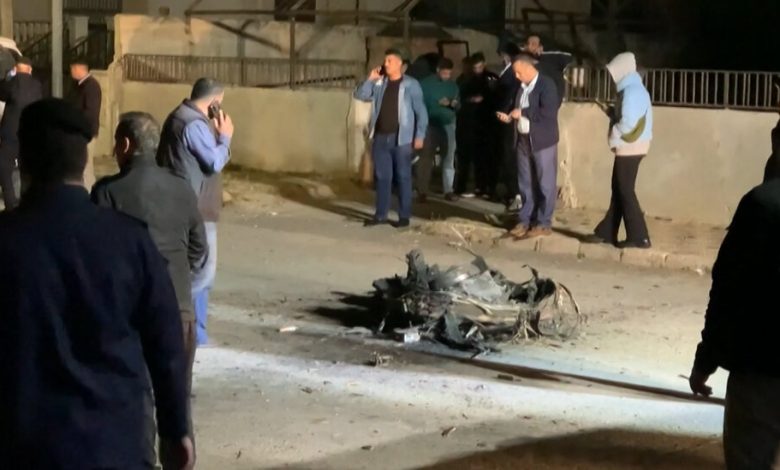An Unexpected Player in Israel’s Defense: Jordan, Home to Many Palestinians

The response by Israel and other nations to Iran’s aerial attack kept the majority of its drones and missiles from landing in Israel, ensuring they caused only light damage and a handful of injuries, Israeli officials said.
An unexpected — and for some, unwelcome — actor played a role in Israel’s defense: Jordan, the Arab kingdom next door.
Jordan fought four wars with Israel between 1948 and 1973 before signing a peace treaty in 1994. Its population is heavily made up of Palestinians, and their descendants, who were barred from returning to their homes by Israel after the 1948 war that followed the establishment of the Jewish state.
Jordan’s involvement was welcomed by older Israelis who remembered when Jordan would shell Israel. But Palestinians and their supporters denounced Jordan’s role, accusing the kingdom of siding with Israel at a time when its military offensive in Gaza has killed more than 33,000 Palestinians, according to health officials there.
Amir Tibon, a journalist for the Israeli newspaper Haaretz, celebrated the role played by Israel’s allies, including Jordan. He called it “an important lesson for us Israelis.”
“Science, technology and alliances with the world: These are the things that hold Israel together,” he wrote.
On Sunday, Jordan’s government issued a statement describing its military action as an act of self-defense, not done for the benefit of Israel.
It said the drones and missiles “that entered our airspace last night were dealt with and confronted preventively without endangering the safety of our citizens and residential and populated areas.”
It military will continue to defend Jordan against any future incursions by “any party” in defense of “the nation, its citizens, and its airspace and territory,” the Jordanian government added.
That official explanation did not mollify critics of Jordan’s involvement on Sunday. Large pro-Palestinian demonstrations have taken place in Jordan since the war began in October, and the authorities have often responded harshly. This year, Amnesty International criticized the kingdom for arresting more than 1,000 protesters and others.
Social media users shared a meme of Jordan’s ruler, King Abdullah II, wearing an Israeli military uniform. In a post on X, Dima Khatib, the managing director of AJ+, a digital news organization owned by the pan-Arab network Al Jazeera, called Jordan’s actions “shocking.”
“Friendly countries are responding, not to the attack of Israeli planes, drones and missiles on Palestine, but to an attack on Israel,” she wrote. “There are Arab citizens who pull the trigger to protect Israel and watch when the Palestinians are bombed.”
